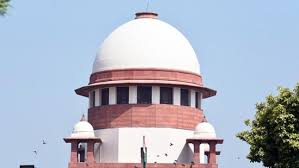Representation of Peoples Act, 1951 – Section 100(1) (d) (i) (ii) and (iv), 100 (1) (b) – Code of Civil Procedure, 1908 – Order VIII Rule 9 – Election Petition – Subsequent pleading – The issue revolved around whether subsequent pleading, akin to Order VIII Rule 9 of the Code of Civil Procedure (CPC), is permissible during the course of election petition proceedings under the Representation of Peoples Act, 1951 (1951 Act). The contention was analyzed against the backdrop of ensuring fair and effective trial.
The Supreme Court underscored that while replication is not a part of initial pleadings under Order VI Rule 1 of the CPC, it could be allowed with the leave of the Court under Order VIII Rule 9. However, such leave should not be granted indiscriminately but should align with ensuring fairness and effective adjudication.
The Supreme Court outlined specific circumstances under which leave for replication may be granted – when required by law – when directed by the court; or when necessitated by a counterclaim. Moreover, the replication must not introduce new causes of action or facts inconsistent with original pleadings
The court elucidated that the powers of the High Court acting as an Election Tribunal are akin to those under the CPC but are circumscribed by the provisions of the 1951 Act. Thus, replication can be allowed to ensure clarity and fair trial, provided it doesn’t introduce new causes of action or facts.
In the present case, the replication sought to address explanations provided by the returned candidate in the written statement without introducing new material facts or causes of action. The court found the grant of leave justified, ensuring a fair and effective trial. (Para 24)
SUPREME COURT OF INDIA
2024 STPL(Web) 339 SC
[2024 INSC 391]
Sheikh Noorul Hassan Vs. Nahakpam Indrajit Singh & Ors.
Civil Appeal N0. 1389 of 2024(Arising out of SLP (C) No.11136 of 2023)-Decided on 8-05-2024
https://stpllaw.in/wp-content/uploads/2024/05/2024-STPLWeb-339-SC.pdf







